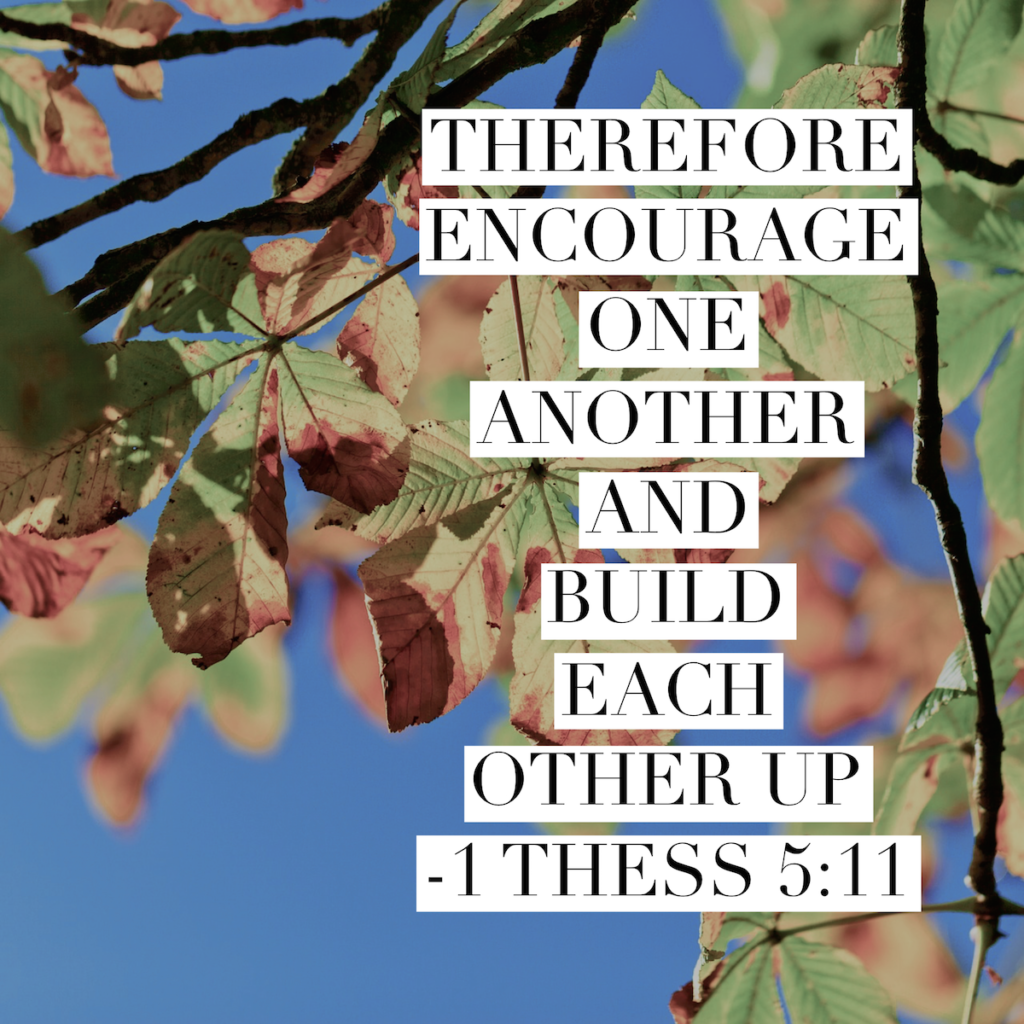The Delicate Art of Offering Encouragement

I love encouraging others. I like to think I was born this way. But the truth is I haven’t always been very skilled at the delicate art of offering encouragement.
When I was about six years old, I stood on the ground below a tree where my younger sister Barb sat on a low-hanging branch. She had attempted to climb up after me, and now her four-year-old self was stuck not knowing how to get down.
“Jump!” I shouted. “Do it just like I did. It’s easy! Come on already! You can do it!”
She jumped. And got stuck hanging upside down in the crook of the tree. Barb’s screams brought our mom running to her rescue. No one was hurt that day, but only because my mom wouldn’t let my sister come for me. She was one angry little girl!
Sometimes our words of encouragement are like that. We tell others to jump because it was easy for us. And they end up hanging upside down feeling angry, or worse – like they don’t measure up.
When we present to others an example of how we got something done – when we say, “You should do it this way. It was easy!” – we’re not always sending the encouraging message we intend. Because sometimes what seems easy to me, might feel impossible to you.
So what is an encourager to do? How can we share our experiences and help one another know we’re all in this together, without the harmfulness of comparison creeping into our friendships?
Here are a few things I’ve noticed to be true about the most encouraging people in my life. And a couple of lessons I’ve learned since the days of shouting at my sister to jump like me.
Encouraging friends listen well.
Sometimes we confuse offering encouragement with giving advice. But the truth is that those who are best at encouraging others ask a lot of questions and listen a whole lot more than they speak.
Often in our desire to connect, we quickly think of a story to share. We can’t wait for our friend to take a breath so we can rush in with how we handled a similar situation. Don’t do it. Ask a few more questions. Slow down and be sure you’ve heard everything before sharing your “me too” moment. Your friend will feel loved and encouraged by your willingness to listen well enough to understand. And your “me too” moment will be even more meaningful.
Encouraging friends don’t offer answers or solutions.
Good friends gently encourage you to explore things about yourself that you might not see in the mirror. They believe in you because they’ve taken the time to get to know you – a natural outcome of listening well.
And they understand that no matter how alike you are, no two people will experience anything in the same ways. While your similar experience might give you some insights or be helpful in creating empathy, your friend needs space to do what’s right for her, not to do what worked for you.
Stop if you find yourself starting a sentence with, “You should…” or “Here’s what I did…” Instead, communicate respect for your friend’s ability to think things through by asking, “Have you thought about…” or “What are your thoughts about this…”
Encouraging friends pay attention to the atmosphere.
If you find yourself in a competitive or comparative relationship, take a step back and ask God to show you what’s going on. Are you trying to take control? Do you feel like you need to fix your friend? Or conversely, are you getting the vibe that you’re not measuring up? Are you feeling overly sensitive? Or have you stumbled upon someone who is not a safe person?
Recognize that we are often drawn to people who feel familiar to us. So if you grew up in a home where criticism and comparison were regulars at the dinner table, you might discover that some of the people in your life now look a lot like those old family pals. Thankfully, my sister Barb has not surrounded herself with friends who encourage her to make risky jumps from trees. But often, without being aware, our instinct to return to the familiar outweighs our desire to grow healthy relationships. Take a beat to ask God if that might be true for you. And if so, to show you what changes you could make to turn a tough relationship around.
Spending time with encouraging friends will leave you feeling lifted up, not like you’ve let someone down.
Finally, remember that some of us are more tenderhearted about this than others. If you grew up in a home where good was never good enough or spent time in relationships where you felt you never measured up, you might have a very sensitive antenna that seems to detect criticism in every encouraging suggestion. Give your friends the benefit of the doubt. Believe first that they mean well and be brave enough to share when you are concerned that they don’t.
Theodore Roosevelt once said, “Comparison is the thief of joy.” I would add that comparison is also a barrier to learning the delicate art of encouragement.
Let’s take down that barrier today, and experience the full joy of friendship in the way God designed. As an encouraging, life-giving community where friends “spur one another on toward love and good deeds” (Heb 10:24), while leaving comparisons at the door.
♥









Thank you Jody for a wonderful article on encouragement. That is somthing that is so desperately needed today.
You probably have the Spiritual Gift of encouragement.
God bless you
Martin n Beth
Thank you for sharing…enjoyed it so much. Definitely going to share and read again!